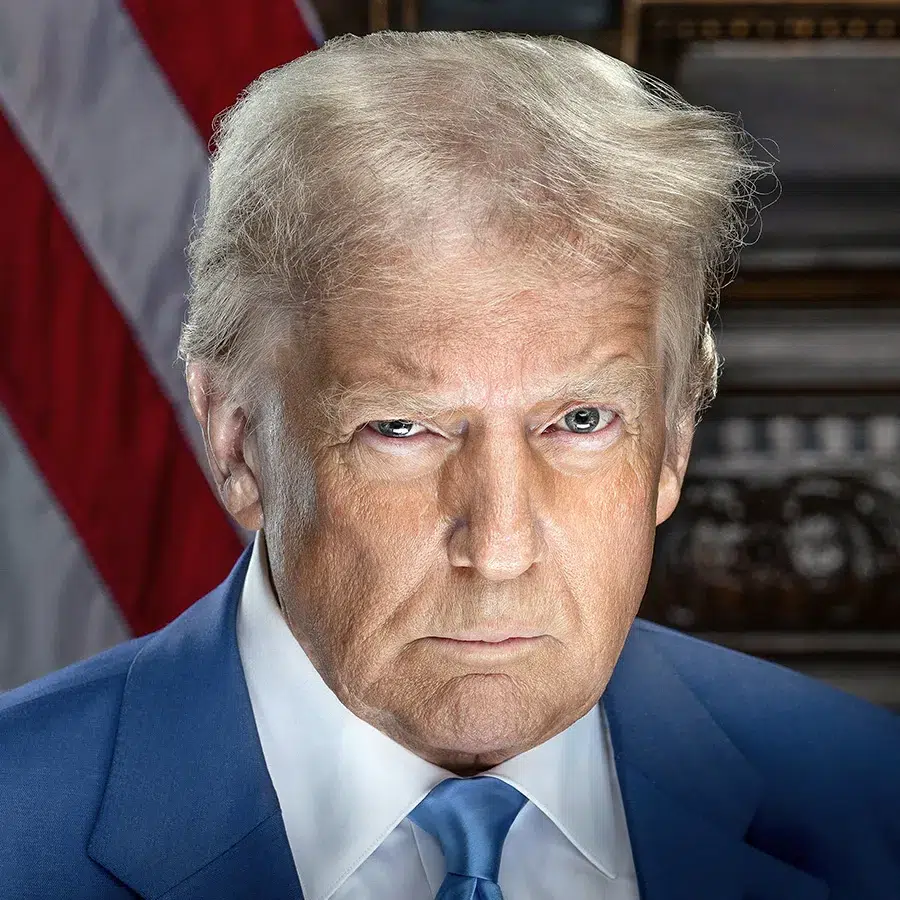President Kennedy.
John F. Kennedy was the first president to conduct live televised press conferences. During the course of his Presidency, an average of 1 every 16 days. The first aired on January 25, 1961, and was viewed by an estimated 65 million people. This number is even more impressive if you consider that the United States only had approximately 179 million people at the time.
As of this date, Kamala Harris has not had a press conference. I doubt that she will. Fox News frequently mentions that the Vice President has avoided press interaction. A typical headline reads: 65 days: Kamala Harris has yet to do formal press conference since emerging as Democratic nominee. Even those networks viewed as liberal have questioned her failure to meet with the press other than in a one-on-one event. As early as August 8, 2024, a New York Times headline read in part: Kamala Harris Isn’t Giving Interviews.
What has changed since Kennedy?
If you are a Republican, you may hope that I will lambast the Vice President for avoiding the press. You hope I will pile on and point out the error of her ways. You hope for too much.
What is essential is that Kamala Harris could become president without ever holding a press conference. How can this be? How can someone become president and never have their ideas challenged in a free-for-all called a press conference?
The answer is not straightforward and must be divided into several parts. Since President Kennedy gave his first press conference, significant changes have occurred. Social media has arisen; people have learned not to trust the press; candidates have resorted to blatant press shopping, and AI has reared its head.
Social Media.
Let’s address each of these briefly. President Kennedy had 65 million people view his first press conference. Why? Television and radio were the leading means of communication. What else was there to do? During the press conference, people were mesmerized. The press conference was an “event.”
The rise of social media outlets has made it easy for candidates to “market” themselves to millions continually and almost instantly; television is far less important. Social media makes it possible for a candidate to excel without press conferences. Notice I did not say candidates use social media to get their message out. In today’s world of texts, emails, and robocalls, a candidate’s platform is rarely touted; the focus is on the negative. Voters are harangued mercilessly. Candidates repeatedly tell the public that the world will end if they vote for the wrong candidate. (Both parties do this.)
I should add that campaigns have become more vitriolic with each passing presidential cycle. This vitriol has been enhanced by social media, but it is not solely due to social media. Our country has grown progressively more angry. Short of mortal combat between the candidates, I doubt that there is a limit to how bitter political campaigns can become or what will be said about a candidate and their family.
You can take the position that if a candidate posts their platform on a social media site, it is entirely vetted. Right? Who needs pesky reporters? Building on this, Hillary Clinton has said that Kamala Harris does not have to hold press conferences since she has put her plan online. Clinton has stated, “In fact, she’s put out policies on her campaign website. Anybody who’s truly interested can go and read about them.” There is one thing that Ms. Clinton overlooked. There is a difference between posting something and holding it up to public scrutiny during a press conference.
Who trusts the press?
A second area of concern is the press's credibility. It is questionable whether people care about press conferences because they do not trust the press.
Several weeks ago, I watched a late-night show. (I will not mention the show or the guest on the show to avoid appearing to bash a particular position or network.) The host was interviewing someone from a major news outlet. He made the mistake of complimenting the guest for the objectivity of their outlet. The audience moaned. The host looked perplexed. Then he added he really meant it. He may have meant it, but as the moan illustrated, many in the public have grown suspicious of any press source, left or right.
When President Kennedy gave his first press conference, Walter Cronkite was near the height of his career. Great newsperson. I remember, as a child, watching him on television, giving the nightly news or broadcasting when a special event occurred. My parents were conservative; I am reasonably sure Cronkite was liberal. But I can remember my parents saying they trusted him because he was always fair and balanced. I do not know if he was, but that was the perception people had. That is not the perception that people have of the press today. Any legacy that Walter Cronkite intended to leave behind has died.
Pick Your Press.
The candidates have handled the press reasonably well. The operative word is “handled.” Vice President Harris elects to do interviews on channels that are viewed as liberal. I have watched her performances and noted that she has been treated very graciously. Interviews tend to be fireside chats.
Former President Trump has not been treated as well by the left. However, it should be noted that he gives many interviews to Fox News, hardly a bastion of hard-core left values. Maybe it would be fairer to ban candidates from talking to reporters or anchors. That way, neither candidate could pick someone or some news outlet that is prone to support their position.
AI.
An added component to this discussion is AI. As AI expands, the need for reporters probably will decline, making press conferences less important. A CNN headline at the beginning of the year read: News industry off to brutal 2024 start as mass layoffs devastate publishers, raising questions about the future of journalism. (To be fair, ad revenues are shifting from the traditional journalism side of the business and moving to social media. This shift makes it hard for conventional outlets to afford staff.) However, there is no doubt that AI will take its toll. Who needs journalists to write articles when AI will do it faster? The nice thing is that AI can be programmed to be biased, so it can take a left or right position in what it writes. Who needs a press conference if everything is written by AI?
Avoiding scrutiny may be good.
It is essential to point out that President Biden focused on avoiding the public and became president. If Vice President Harris is elected president and never holds a press conference, we may have crossed a threshold to a new paradigm. All future candidates will avoid press conferences and will restrict interviews to those outlets that will make them look good. If she loses, then the political soothsayers, who are noted for their hindsight wisdom, will claim that she made a tragic mistake. There is no wrong or right answer.
Regardless of what candidates do, I am going to vote. It is my privilege and duty.
If you have not read the blog that describes the "However View," click here.
Picture of the press table from Vecteezy.





